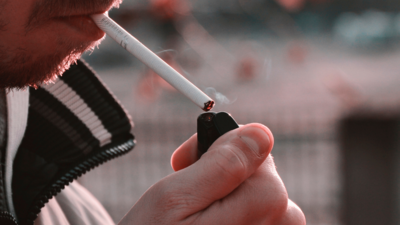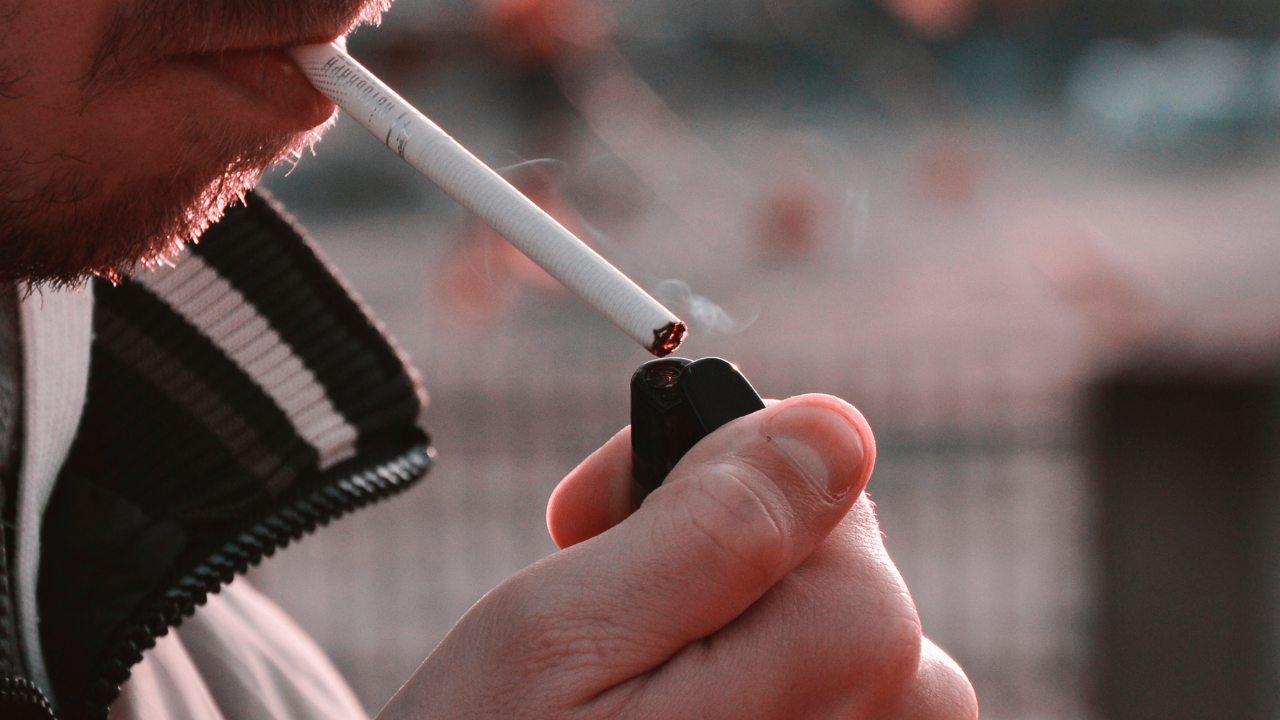Post-meal smoking cravings tied to routine and brain
Many smokers tend to have the habit of lighting a cigarette after a meal claiming it to be a normal course of action after having food. This practice, however, is not purely a cultural habit or just a matter of choice, as there are also neurobiological and psychological factors that affect this behaviour of people. If you’ve ever found yourself craving a cigarette right after finishing a meal, you’re definitely not alone. It turns out this post-meal craving isn’t just a coincidence—it’s a habit your brain has formed, and the science behind it is pretty fascinating! To address this question, it is essential to investigate how both the nicotine and the meal work on the brain; certain cravings called post-cigarette cravings would follow.
Neurobiological factors
Post-meal smoking cravings
are intricately linked to the brain’s response to food and nicotine. When individuals consume meals, especially those high in fats and sugars, there is an increase in the release of dopamine, a neurotransmitter that enhances feelings of pleasure and satisfaction. This is similar to the dopamine release triggered by smoking. Additionally, the nicotine from cigarettes interacts with nicotinic acetylcholine receptors in the brain, which are more receptive post-meal, thereby amplifying the rewarding sensations from smoking. The digestive process also plays a role by affecting the body’s metabolism and potentially enhancing the effects of nicotine.
Psychological and behavioural factors
The feeling of wanting to smoke after having meals is often a learned response. Most smokers cement this habit based on a formula where eating is followed by smoking, which through constant reinforcement becomes a routine. These patterns can also, in fact, get enhanced by socialization and culture, making smoking a norm in postmeal activities both individually and socially.
Reward routine of brain
According to Tehseen Siddiqui, Chief Dietician, Saifee Hospital, Mumbai, “Here’s the thing: every time you go and eat, your brain receives a little reward through the dopamine—that chemical, feel-good thing, you know, which feels really content and satisfied. When you add a cigarette into the mix, now it’s not just food being associated with dopamine; nicotine is giving dopamine an even bigger boost, thus a supercharged reward to that particular brain. That particular brain loves this combination and starts linking eating with smoking. Before you know it, your brain develops the thought, “Meal + cigarette = happiness,” and becomes automatic.”
But it is not only the habit; it is a routine. Your brain thrives on repetition, and if you have always smoked after meals, then it is something you just expect. Every time you sit down to eat, your brain begins to prepare for that cigarette after meals. It’s like an unwritten rule in your brain that becomes harder to break the more you do it.
And it begins by understanding this brain connection, which is the first step toward breaking that cycle. The good news is that once you know what’s really going on in your brain, you can start rewiring those habits.
Strategies to manage post-meal smoking cravings
According to Dr. Aradhana Chauhan, Neurologist, Sahyadri super speciality hospital, Deccan Gymkhana, Pune, “There are some techniques the patients can use that can help them deal with the urge. This will help the addict view a craving as something passing and not something that requires action. Behavioural substitutions such as engaging in a short walk, drinking water, or using nicotine-free oral substitutes like gum or lozenges can also disrupt the habit loop. Additionally, counseling or medication can provide further assistance in overcoming the ingrained habit of post-meal smoking.”
Find your way:
What’s your motivation? Better health? Saving money? Impressing your kids? Whatever it is, hold on to that reason when cravings hit.
Here are a few tips that might help:
1. Vary Your Patterns: Do not eat at the same time every day. This is to break the pattern that your brain has created about associating meals with smoking.
2. Create New Alternatives After Eating: Instead of smoking, take a walk, sip herbal tea, or just do something relaxing that will distract you.
3. Mindful Eating: Focus on savoring every bite. Once you slow down and enjoy the flavors, your brain gets all it needs from the meal itself, making that craving for a cigarette less tempting.
4. Break the Association: If you used to smoke with coffee, try switching to tea. Changing the pattern can throw your brain off track and weaken the craving.
It may take a while to kick the habit, but the important thing to note is that your brain’s habits can be reshaped and, with a bit of patience, you can be in control and good-bye to those post-meal cravings.
Both neurobiological and behavioural factors significantly influence the cravings for smoking after meals. A comprehensive approach that addresses these factors can be effective in helping individuals manage their cravings and potentially quit smoking.
The willingness to smoke a cigarette after a meal can definitely be traced to some either neurobiological or behavioural mechanism. A combination of these variables has been found to be useful in enabling people to control cravings and even assist them in quitting.
How to control sugar cravings after finishing every meal
I’m Manas Ranjan Sahoo: Founder of “Webtirety Software”. I’m a Full-time Software Professional and an aspiring entrepreneur, dedicated to growing this platform as large as possible. I love to Write Blogs on Software, Mobile applications, Web Technology, eCommerce, SEO, and about My experience with Life.




